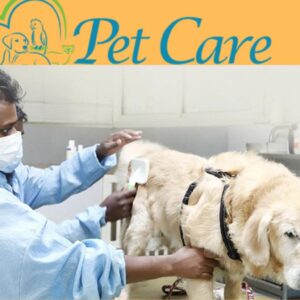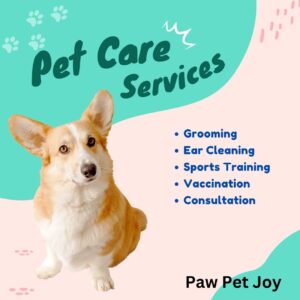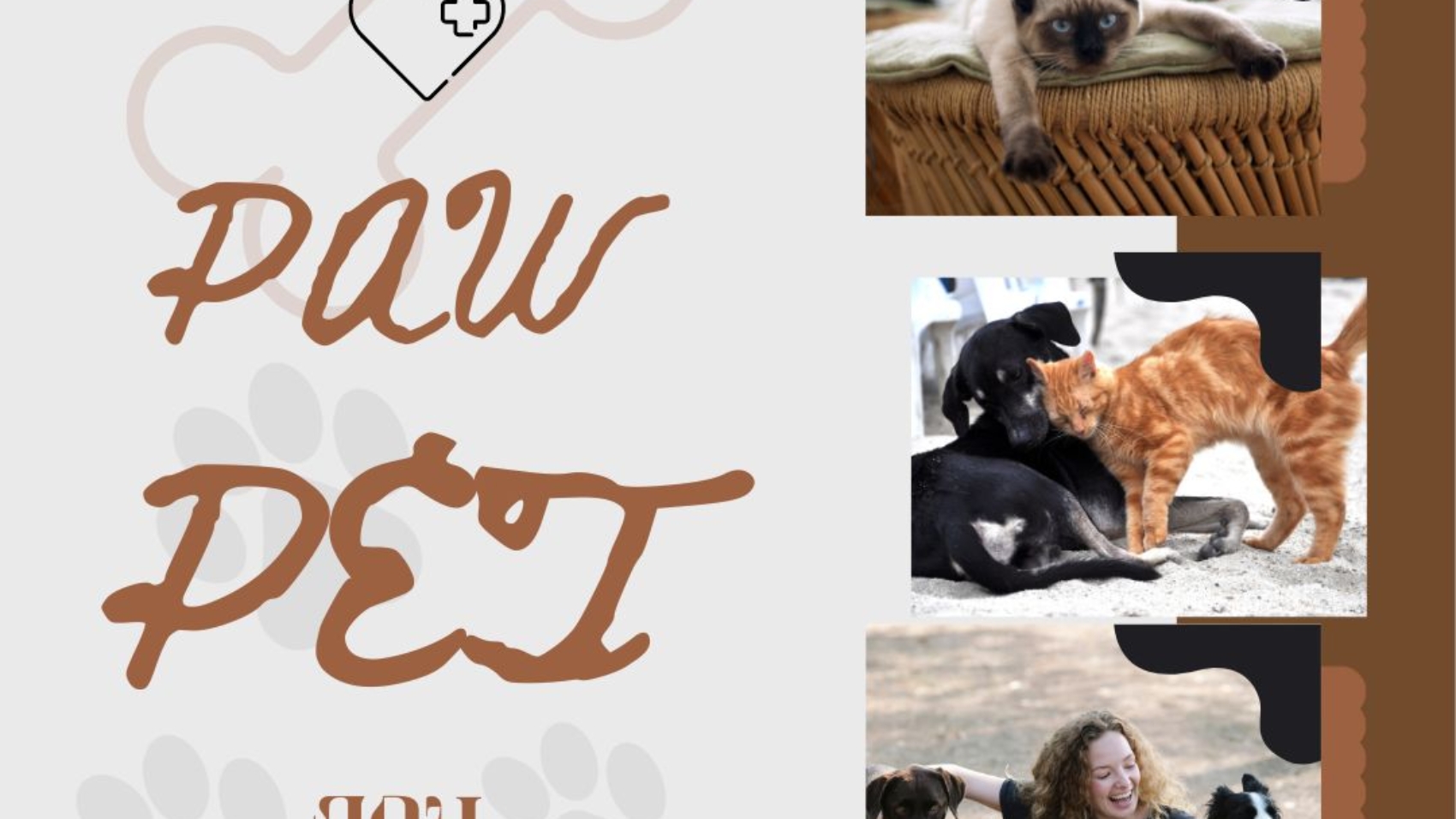Responsible pet care isn’t just about the “do’s” – it’s also important to be aware of the “don’ts” when it comes to caring for our beloved animals.
Introduction:
We will explore the dos and don’ts of responsible pet care to help you become a more informed and conscientious pet owner. By understanding what actions are beneficial and harmful for your pet, you can create a loving and nurturing environment for them to thrive in. So, let’s dive in and learn how to provide the best care possible for our four-legged companions.

When it comes to responsible pet care, there are a few key things you should always keep in mind. First and foremost, make sure to provide your pet with regular veterinary care. This includes annual check-ups, vaccinations, and preventive treatments for things like fleas and heartworms. It’s also important to keep up with grooming, whether that means brushing your pet’s fur regularly or keeping their nails trimmed.
Exercise is also crucial for your pet’s physical and mental well-being. Make sure they get plenty of opportunities to run, play, and explore, whether that means going on walks, playing with toys, or having a designated area where they can exercise. Regular exercise can help prevent obesity, improve your pet’s mood, and strengthen your bond with them.
Responsible pet care also includes making sure your pet is properly identified and licensed. This can help ensure that your pet is returned to you if they ever get lost, and it can also help authorities track down any potential health or behavior issues. And don’t forget to spay or neuter your pet to prevent overpopulation and reduce their risk of certain health problems.
Provide proper nutrition for your responsible pet care
Providing proper nutrition for your beloved pet is essential for their overall health and well-being. Just like humans, pets require a balanced diet that meets their specific nutritional needs in order to thrive. Here are important tips to ensure you are providing the best nutrition for your furry friend.
First and foremost, it is crucial to select a high-quality pet food that is appropriate for your pet’s age, size, and activity level. Different pets have different dietary requirements, so it is important to consult with your veterinarian to determine the best food for your pet. Look for pet food that is formulated specifically for your pet’s species, whether it be dogs, cats, birds, or other small animals.
In addition to providing a balanced diet, it is important to feed your pet the appropriate amount of food each day. Overfeeding can lead to obesity, which can result in a variety of health issues such as diabetes, arthritis, and heart disease. On the other hand, underfeeding can lead to malnutrition and deficiencies in essential nutrients. Consult with your veterinarian to determine the appropriate portion size for your pet based on their age, weight, and activity level..
By providing proper nutrition for your pet, you are helping to ensure that they live a long, happy, and healthy life. Remember to consult with your veterinarian for personalized recommendations and guidance on your pet’s dietary needs
Regularly exercise your responsible pet care

Regular exercise is a key part of responsible pet care. Just like humans, our furry friends need to stay active to maintain their physical and mental well-being. Regular exercise can help prevent obesity, improve cardiovascular health, and reduce the risk of behavioral issues caused by boredom or excess energy.
One of the best ways to provide your pet with regular exercise is to take them for daily walks. Dogs, in particular, thrive on routine walks that allow them to explore their surroundings and expend energy. By taking your dog for a walk each day, you are not only providing them with physical exercise but also mental stimulation as they sniff and explore their environment.
If you have a cat, providing them with exercise can be a bit different. Cats are natural hunters, so interactive play sessions that mimic hunting behavior can be a great way to keep them active. Toys such as feather wands or laser pointers can provide cats with mental and physical stimulation while also strengthening the bond between you and your feline friend.
In addition to walks or play sessions, incorporating other forms of exercise into your pet’s routine can have numerous benefits. Agility training, fetch, or even swimming can all be great ways to keep your pet active and engaged. Not only does exercise help keep them physically fit, but it can also provide mental enrichment and prevent boredom.
It’s important to remember that not all pets have the same exercise needs. Some breeds may require more exercise than others, so it’s essential to tailor your pet’s exercise routine to their individual needs. Older pets or those with health conditions may also have limitations on the type and amount of exercise they can handle, so it’s crucial to consult with your veterinarian to create an appropriate exercise plan
Schedule regular veterinary check-ups to responsible pet care

As a responsible pet owner, one of the most important things you can do for your pet is to schedule regular veterinary check-ups. Just like humans, pets can develop health issues that may not be immediately obvious to their owners. By taking your pet to the vet on a regular basis, you can catch any potential problems early and ensure that your pet is happy and healthy.
You take your pet to the vet at least once a year for a check-up. During these visits, the vet will conduct a thorough physical exam to check for any signs of illness or injury. They may also recommend vaccinations, flea and tick prevention, and other preventive care measures to keep your pet healthy.
If you have a puppy or kitten, you’ll need to visit the vet more frequently for vaccinations and other care. Young pets are more susceptible to certain illnesses and parasites, so it’s important to stay on top of their healthcare needs to give them the best start in life.
Regular veterinary check-ups are not only important for your pet’s health, but also for your own peace of mind. Knowing that your pet is in good health can alleviate worry and help you to enjoy your time together even more.
Provide your responsible pet care with a safe, comfortable environment
When it comes to providing your pet with responsible care, creating a safe and comfortable environment is essential. Just like humans, animals thrive in spaces that are secure, clean, and suited to their needs. Here are some dos and don’ts to keep in mind when it comes to creating the ideal living space for your furry friend.
Don’t neglect your pet’s need for mental and physical stimulation. Pets, especially dogs and cats, require regular exercise and playtime to keep them happy and healthy. Consider providing toys, puzzles, or interactive games to keep your pet entertained and engaged.
Do keep your pet’s living area clean and hygienic. Regularly clean and disinfect your pet’s food and water bowls, litter boxes, bedding, and toys to prevent the spread of germs and bacteria. A clean environment is not only vital for your pet’s health but also for your own.
Do ensure your pet has access to fresh water and a balanced diet. Proper hydration and nutrition are essential for your pet’s overall well-being. Make sure your pet has access to clean water at all times and feed them a diet that is appropriate for their species, age, and health status.
Do provide your pet with a comfortable climate. Make sure your pet’s living space is kept at a comfortable temperature, especially during extreme weather conditions. Consider providing heating pads or cooling mats to help regulate your pet’s body temperature.
Give your responsible pet care plenty of love and attention
Responsible pet care goes beyond just providing food and shelter for your furry friend. One of the most important aspects of being a pet parent is giving them plenty of love and attention.
Pets, whether they are dogs, cats, birds, or any other animal, crave companionship and affection just like humans do. It is essential to spend quality time with your pet every day, whether it be playing, cuddling, or simply sitting next to them and giving them some attention.
When you give your pet love and attention, you are not only making them feel happy and loved, but you are also strengthening the bond between you and your pet companion. Pets thrive on human interaction and will develop a deeper connection with you when they receive the love and attention they desire Responsible pet care.
Neglect your pet’s basic needs
Neglecting your pet’s basic needs is not only irresponsible pet care but also harmful to their health and well-being. Make sure you are providing your pet with the proper food and water, a safe and comfortable living environment, regular exercise and grooming, routine vet check-ups, and plenty of love and attention. By meeting these basic needs, you can ensure that your pet leads a happy and healthy life by your side.
Ignore signs of illness or injury
Ignoring signs of illness or injury in your pet can have serious consequences. Just like humans, pets can get sick or injured and may not always be able to communicate their pain or discomfort to you. It’s important to pay attention to any changes in behavior or physical symptoms that could indicate a problem.
Leave your pet unsupervised in dangerous situations
When it comes to responsible pet care, one of the most important things to keep in mind is never leaving your pet unsupervised in dangerous situations. Pets, just like humans, can get themselves into trouble if left unattended in hazardous environments. It is crucial to always be mindful of your pet’s safety and well-being.
What does responsible pet care entail?
Responsible pet care involves providing proper nutrition, regular exercise, veterinary care, socialization, and a safe environment for your pet. It also includes training, grooming, and ensuring their overall well-being.
How often should I take my pet to the veterinarian?
It’s recommended to take your pet for regular check-ups at least once a year. However, depending on your pet’s age, health condition, and specific needs, your veterinarian may recommend more frequent visits.
What should I feed my pet for a balanced diet?
A balanced diet for your pet typically consists of high-quality commercial pet food appropriate for their species and age. Consult with your veterinarian to determine the best diet plan, which may include a mix of dry and wet food, along with occasional treats.
How can I ensure my pet gets enough exercise?
Regular exercise is essential for your pet’s physical and mental well-being. This can include daily walks, playtime, interactive toys, and activities that stimulate their natural instincts. The amount and type of exercise needed depend on your pet’s breed, age, and health condition.
What steps can I take to ensure my pet’s safety at home?
To keep your pet safe at home, it’s important to pet-proof your living space by removing hazardous items, securing cabinets and trash cans, and keeping toxic substances out of reach. Additionally, provide proper identification for your pet through collars, tags, and micro chipping in case they get lost. Regularly inspect your home for potential dangers and address them promptly.
Conclusion:
Responsible pet care is essential to never leave your pet unsupervised in dangerous situations. Whether it is in a hot car, near open flames, outdoors, or during mealtimes, always be vigilant and ensure that your pet is safe and secure. By being mindful of your pet’s well-being and taking the necessary precautions, you can help prevent accidents and keep your pet happy and healthy. Responsible pet care starts with being a responsible pet owner, so always keep your pet’s safety in mind.

Leave A Comment